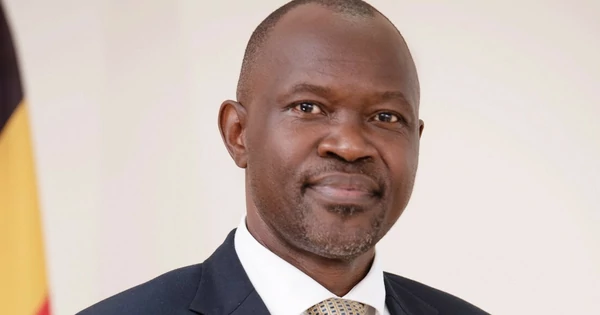Kerry Howard Mwesigwa
David Livingstone Ebiru, the Executive Director of the Uganda National Bureau of Standards (UNBS), has been relieved of his duties following a series of grave revelations that have sent shockwaves across the nation. The decision to terminate Ebiru’s contract was prompted by the findings of a parliamentary investigation and an internal review by the UNBS Board.
Ebiru’s tenure at the helm of UNBS came to an abrupt end due to a comprehensive inquiry into his actions. Trade, Industry, and Cooperatives Minister Francis Mwebesa cited the results of the National Standards Council (NSC) investigation and Ebiru’s own admissions during a hearing before the Committee on Statutory Authorities and State Enterprises (COSASE) as the basis for his dismissal.
The allegations that sealed Ebiru’s fate were nothing short of egregious. Mr. Ebiru revealed to the parliamentary hearing that he paid a substantial bribe of Shs100 million to retain his position.
His admission of withdrawing and utilizing a staggering $3.2 million (approximately 11.5 billion Ugandan shillings) from the Pre-export Verification of Conformity (PVoC) collection funds struck at the heart of financial integrity. These funds, intended for remittance to the Consolidated Fund, were diverted in contravention of the Public Finance Management Act 2015.
Further allegations revealed that Ebiru had misappropriated 285 million Ugandan shillings from funds deposited by traders and businesses for security purposes. This unauthorized expenditure directly flouted the guidance of the Accountant General and the Republic of Uganda Treasury Instructions 2017.
Ebiru’s alleged misconduct extended to unauthorized cash withdrawals, bypassing the established protocols of the Council and the Ministry of Finance, Planning, and Economic Development. These series of financial transgressions were in violation of the UNBS Finance and Administration Manual and Treasury Instructions 2017.
Moreover, his leadership was called into question for failing to take disciplinary action against five staff members who were implicated in financial losses totaling a staggering 9.282 billion Ugandan shillings. These employees were accused of tampering with inspection dates and application records, casting doubt on the credibility of the organization.
Ebiru’s removal stemmed from his own admissions of breaches of the law and established procedures. The Council, under the provisions of Section 11(2), (5) [b], and [c] of the UNBS Amendment Act 2013, unanimously recommended his dismissal. Minister Mwebesa’s decision to act on this recommendation underscored the gravity of the situation.
Ebiru’s actions were deemed to have not only tarnished UNBS’s reputation but also brought discredit to its governing Council members. The minister’s decision reflected a commitment to upholding accountability and integrity within a crucial national institution.
The Minister’s letter formalized Ebiru’s departure, informing him of his immediate dismissal from the position of Executive Director of UNBS. The decision was grounded in legal mandates outlined in the UNBS Amendment Act 2013, emphasizing a clear dedication to maintaining transparency and trust.















